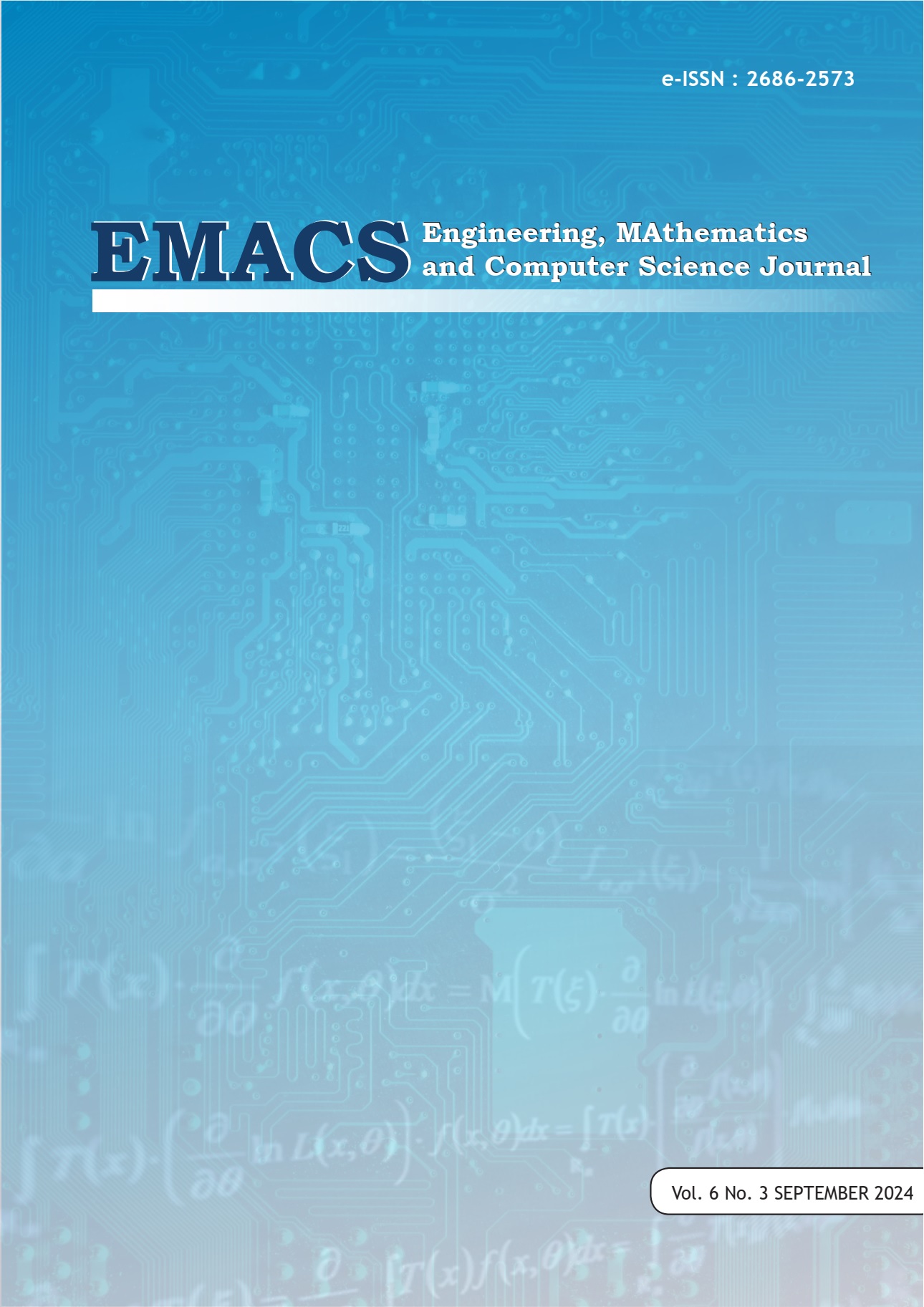An Implementation of Ordinal Probit Regression Model on Factor Affecting East Java Human Development Index
DOI:
https://doi.org/10.21512/emacsjournal.v6i3.12094Keywords:
Human Development Index, Ordinal Probit Regression, Regression ModelAbstract
An instrument for measuring human development, the Human Development Index (HDI) looks at how well human development has been achieved in relation to a few fundamental aspects of quality of life. In 2023, East Java's HDI showed an increase in the last three years with the latest value of 73.38. Despite the increase, East Java still has the lowest HDI in Java and Bali. This situation suggests the need for an in-depth analysis of the factors that influence HDI. This study aims to identify factors that contribute to HDI to formulate more appropriate policies in the future. The data used is the HDI of East Java in 2023 with ordinal categories. To analyze the ordinal data, the ordinal probit regression method was applied. The results show that the percentage of poor people has a significant influence on HDI. In addition, the classification accuracy of the model is obtained with a value of 50.5%, which indicates that the accuracy of the model in predicting HDI into the right category reaches 50.5%.
References
Anugrahayu, M., & Azmi, U. (2023). Stock Portfolio Optimization Using Mean-Variance and Mean Absolute Deviation Model Based On K-Medoids Clustering by Dynamic Time Warping. Jurnal Matematika, Statistika dan Komputasi, 20(1), 164-183.
Badan Pusat Statistika Indonesia. (2021). Indeks Pembangunan Manusia Indonesia. https://www.bps.go.id/id/publication/2021/04/30/8e777ce2d7570ced44197a37/indeks-pembangunan-manusia-2020.html
Badan Pusat Statistika Indonesia. (2023). Indeks Pembangunan Manusia menurut Provinsi. https://sumsel.bps.go.id/indicator/26/593/1/-metode-baru-indeks-pembangunan-manusia-menurut-provinsi-.html
Febyanti, F. (2022). Pemodelan faktor-faktor yang mempengaruhi harga rumah di Jabodetabek menggunakan metode regresi probit. Jurnal Riset Statistika, 2(1), 50-56.
Greene, W. H. (2000). Econometric analysis 4th edition. International edition, New Jersey: Prentice Hall, 201-215.
Haya, A. (2024). PEMODELAN INDEKS PEMBANGUNAN MANUSIA DI PROVINSI PAPUA TAHUN 2022 MENGGUNAKAN ANALISIS REGRESI SPASIAL. Media Edukasi Data Ilmiah dan Analisis (MEDIAN), 7(01), 60-71.
Hosmer Jr, D.W., Lemeshow, S., dan Sturdivant, R. X., 2013. Applied logistic regression, vol. 398. John Wiley & Sons.
Prasetyoningrum, A. K., & Sukmawati, U. S. (2018). Analisis pengaruh Indeks Pembangunan Manusia (IPM), pertumbuhan ekonomi dan pengangguran terhadap kemiskinan di Indonesia. Equilibrium: Jurnal Ekonomi Syariah, 6(2), 217-240.
Purnama, M. D. (2024). Pemodelan Faktor-Faktor yang Mempengaruhi Indeks Pembangunan Manusia Jawa Timur dengan Regresi Logistik Ordinal. MATHunesa: Jurnal Ilmiah Matematika, 12(3), 654-661.
Putri, M. R., Ridla, M. A., & Azise, N. (2024). PENGARUH TINGKAT KEMISKINAN TINGKAT PENGANGGURAN UPAH MINIMUM KABUPATEN/KOTA DAN LAJU PERTUMBUHAN EKONOMI TERHADAP INDEKS PEMBANGUNAN MANUSIA DI PROVINSI RIAU. Jurnal Cybernetic Inovatif, 8(6).
Ratnasari, V. (2012). Estimasi Parameter dan Uji Signifikansi Model Probit Bivariat. Surabaya: Institut Teknologi Sepuluh Nopember.
Riadi, R. A., dan Kartikasari, M. D., 2020. Implementasi k-means clustering dan regresi logistik ordinal terhadap kinerja cabang pt. x. PROSIDING SENDIKA, 6(1).
Sartika, E., 2010. Pengolahan data berskala ordinal. Sigma-Mu, 2(1), 60–69.
Sofro, A., Oktaviarina, A., & Maulana, D. A. (2019). Metode Statistika. Surabaya, Indonesia: Unesa Press.
Downloads
Published
How to Cite
Issue
Section
License
Copyright (c) 2024 Mohammad Dian Purnama

This work is licensed under a Creative Commons Attribution-ShareAlike 4.0 International License.
Authors who publish with this journal agree to the following terms:
- Authors retain copyright and grant the journal right of first publication with the work simultaneously licensed under a Creative Commons Attribution License - Share Alike that allows others to share the work with an acknowledgment of the work's authorship and initial publication in this journal.
- Authors are able to enter into separate, additional contractual arrangements for the non-exclusive distribution of the journal's published version of the work (e.g., post it to an institutional repository or publish it in a book), with an acknowledgment of its initial publication in this journal.
- Authors are permitted and encouraged to post their work online (e.g., in institutional repositories or on their website) prior to and during the submission process, as it can lead to productive exchanges, as well as earlier and greater citation of published work.
USER RIGHTS
All articles published Open Access will be immediately and permanently free for everyone to read and download. We are continuously working with our author communities to select the best choice of license options, currently being defined for this journal as follows: Creative Commons Attribution-Share Alike (CC BY-SA)





